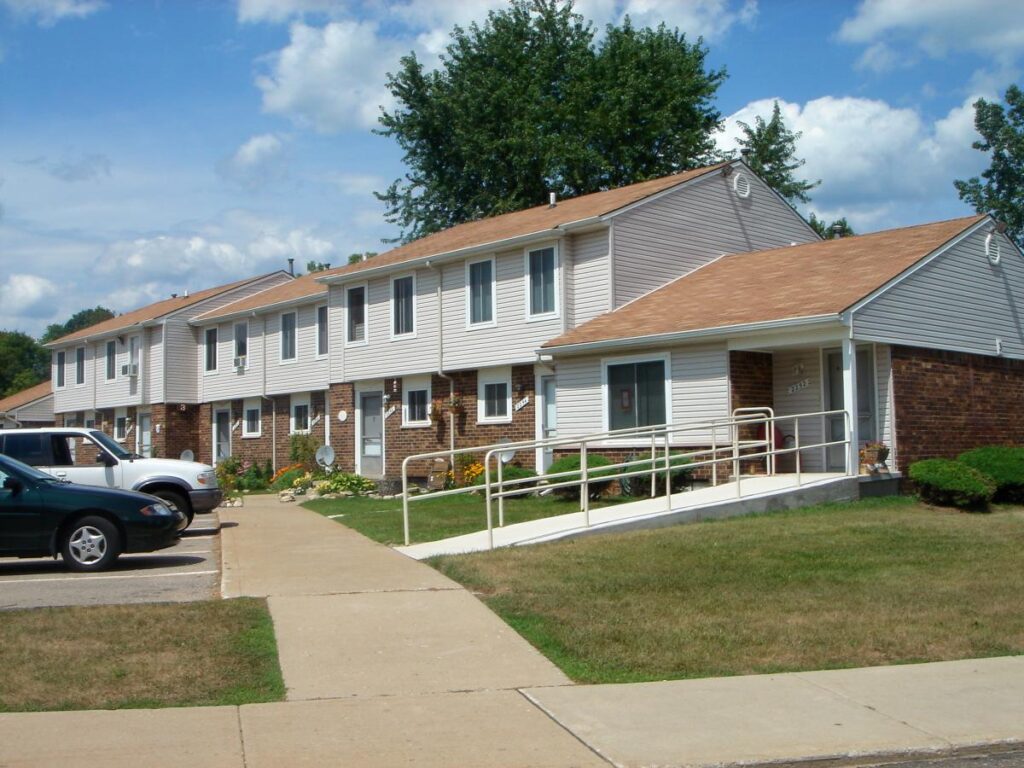2021 LEGISLATIVE UPDATE FOR FLORIDA COOPERATIVES
By: Christopher L. Pope, Esq. and Vanessa Fernandez, Esq.

The 2021 Florida legislative session produced several bills that made numerous changes to cooperative law (Chapter 719, Florida Statutes; the Cooperative Act) that will affect the operation of cooperatives across the State. Below is a summary of the changes to the Cooperative Act law made pursuant to Senate Bill 56, House Bill 463, Senate Bill 602, Senate Bill 630, and Senate Bill 1966, which all managers, Board members, and cooperative residents need to become familiar with before the changes become effective on July 1, 2021.
Note: Senate Bill 56 and Senate Bill 630 have been signed by the Governor, so the changes are law effective July 1, 2021. Senate Bill 1966 has been enrolled and is set to become effective July 1, 2021. Senate Bill 602 became effective May 7, 2021.
SENATE BILL 56 (“SB 56”)
1. Official Records – Section 719.104(2)(a)13, F.S., (SB 56, Page 17)
The affirmative acknowledgments of unit owners related to any change in the method of delivery for assessments must be maintained by the association as an official record, but such record is not accessible to other unit owners as an official record.
2. Assessments and Statements of Account – Section 719.108(3)(b), F.S., (SB 56, Page 21)
There are new requirements on how an association may deliver and change its method of delivery for assessments and statements of account:
(a) An invoice for assessments or a statement of account must be sent by first-class mail or electronic transmission to the unit owner’s email address maintained in the association’s official records.
(b) Before changing the method of delivery for any invoice for assessments or a statement of account, the association must deliver a written notice of such change to the unit owners at least 30 days before it
sends the invoice for assessments or the statement of account by the new delivery method.
(c) Unit owners must affirmatively acknowledge their understanding that the association has changed its method of delivering the invoices for assessments or statements of account to delivery in writing or by electronic transmission.
3. Courtesy Notice of Late Assessment – 719.108(3)(c), F.S., (SB 56, Page 22)
There is a new statutory form notice of late assessments that must be delivered to the unit owner before the association can require the payment of attorney fees related to past due assessments. The notice must specify the amount owed and allow the unit owner at least 30 days to pay the past due assessments without paying additional attorney fees. A sworn affidavit by a Board member, officer, or agent of the association, or a licensed manager, attesting to the mailing will establish a rebuttable presumption that the association complied with these notice and delivery requirements for the notice of late assessments.
4. Notice of Intent to Lien – Section 719.108(4), F.S., (SB 56, Page 23)
The period of time a unit owner has to pay a monetary obligation is increased from 30 days to 45 days after receiving an association’s notice of intent to record a claim of lien.
Senate Bill 602 (“SB 602”)
1. Quorum and Amendments – Section 617.0725, F.S., (SB 602, Page 16)
The law clarifies that the quorum and amendment restrictions in Chapter 617, Florida Statutes (the Florida Not for Profit Corporation Act), do not apply to corporations governed by Chapter 719, Florida Statutes.
2. Conflicts between Chapter 719, Cooperative Act, and Chapter 617, Florida Not for Profit Corporation Act, (SB 602, Page 16)
The law has been clarified and expressly provides that the provisions in the Cooperative Act (Chapter 719) will prevail in any conflict with the provisions governing the Florida Not for Profit Corporation Act (Chapter 617).
SENATE BILL 630 (“SB 630”)
1. Definition of Unit – Section 719.103(25), F.S., (SB 630, Page 65)
The definition of the term “unit” has been revised to clarify that a cooperative unit is an interest in real property.
2. Official Records – Section 719.104(2)(c), F.S., (SB 630, Page 66)
The association may not require a member to demonstrate any purpose or state any reason for inspecting the official records of the cooperative association.
3. Board or Committee Member Participation – 719.106(1)(b)5, F.S., (SB 630, Page 71)
A Board or committee member may participate in a meeting by phone, videoconferencing, or similar real-
time electronic or video communication, and such participation counts toward a quorum. A Board or committee member participating in this manner may vote as if physically present. A speaker must be used so that the conversations of Board or committee members participating in this manner may be heard by others present at the meeting.
4. Board Recalls – 719.106(1)(f), F.S., (SB 630, Page 73)
Unit owners may now challenge a recall rejected by the Board of Directors in a court of law rather than pursue arbitration through the Division of Florida Condominiums, Timeshares, and Mobile Homes (“Division”) within the DBPR.
5. Alternative Dispute Resolution – Section 719.106(1)(l), F.S., (SB 630, Page 74)
The statute now requires the Bylaws to include a provision regarding alternative dispute resolution. Note that due to amendments in the dispute resolution provisions of the Condominium Act, which also governs disputes for cooperatives, a party, in lieu of initiating non-binding arbitration, may now submit a dispute to the pre-suit mediation process in accordance with Section 720.311, F.S., of the Homeowners’ Association Act, and then file in a court of law.
6. Illegal Discriminatory Restrictions – Section 719.106(3), F.S., (SB 630, Page 75)
Cooperative associations may extinguish a discriminatory restriction in the manner provided under Section 712.065, F.S., (i.e., a majority vote of the Board of Directors).
7. Emergency Powers – Section 719.128, F.S., (SB 630, Page 75)
There are new provisions that concern actions the cooperative association is permitted to take in a state of emergency, as well as actions that are prohibited.
(a) Section 719.128, F.S., has been amended to extend a cooperative association’s Board of Directors’ emergency authority to apply its response to injury caused by or anticipated in connection with a declared state of emergency.
(b) The amendments clarify the term “emergency” to have the same meaning as in Section 252.34(4), F.S., which defines emergency to mean “any occurrence, or threat thereof, whether natural, technological, or manmade, in war or in peace, which results or may result in substantial injury or harm to the population or substantial damage to or loss of property.”
(c) The Board is authorized to conduct Board meetings, committee meetings, membership meetings, and elections, in whole or in part, by telephone, real-time videoconferencing, or similar real-time electronic or video communication.
(d) The association is authorized to give meeting notices by electronic transmission.
(e) The association may consult with public health officials when determining whether any portions of the cooperative property are unavailable for entry or occupancy.
(f) The emergency provisions now consider “contagion” and “sanitizing of the cooperative property.”
(g) Subsection 719.128(3), F.S., has been created to provide that during a declared state of emergency, cooperative associations may not prohibit unit owners, tenants, guests, agents, or invitees of a unit owner from accessing the unit and the common elements and limited common elements for the purposes of ingress to and egress from the unit when such access is necessary for the sale, lease, or other transfer of title to a unit or the habitability of the unit. However, the association may deny access based on a governmental order or determination, or a public health directive from the Centers for Disease Control and Prevention, prohibiting access to a unit. Any access is subject to reasonable restrictions adopted by the association.
SENATE BILL 1966 (“SB 1966”)
Annual Budget – Section 719.106(1)(j)1, F.S., (SB 1966, Page 51)
The annual budget for cooperative associations must be proposed to unit owners and adopted at least 14 days before the beginning of the fiscal year. The failure to timely adopt the annual budget a second time is a minor violation and the prior year’s budget will continue in effect until new a budget is adopted.
A note to the reader: This article is intended to provide general information and is not intended to be a substitute for competent legal advice. Competent legal counsel should be consulted if you have questions regarding compliance with the law.
Questions regarding the content of this article may be emailed to Christopher Pope at chrispope@paveselaw.com or Vanessa Fernandez at vanessafernandez@paveselaw.com. To view past articles, please click “Publications” on our firm website. Mr. Pope is 1 of only 2 attorneys in Florida that is Florida Bar Board Certified in both Construction Law and Condominium and Planned Development Law. Mr. Pope is a partner and an experienced construction and real estate attorney, and Ms. Fernandez is an associate attorney, with the Pavese Law Firm, 1833 Hendry Street, Fort Myers, FL 33901; Telephone: (239) 334-2195; Fax: (239) 332-2243.

